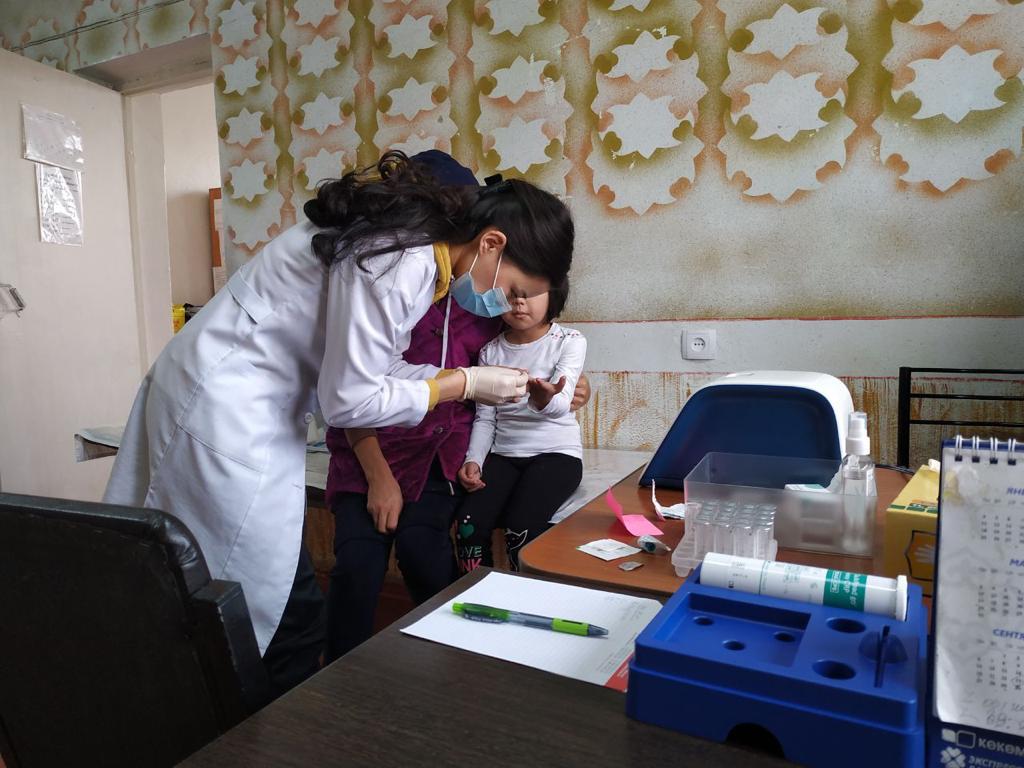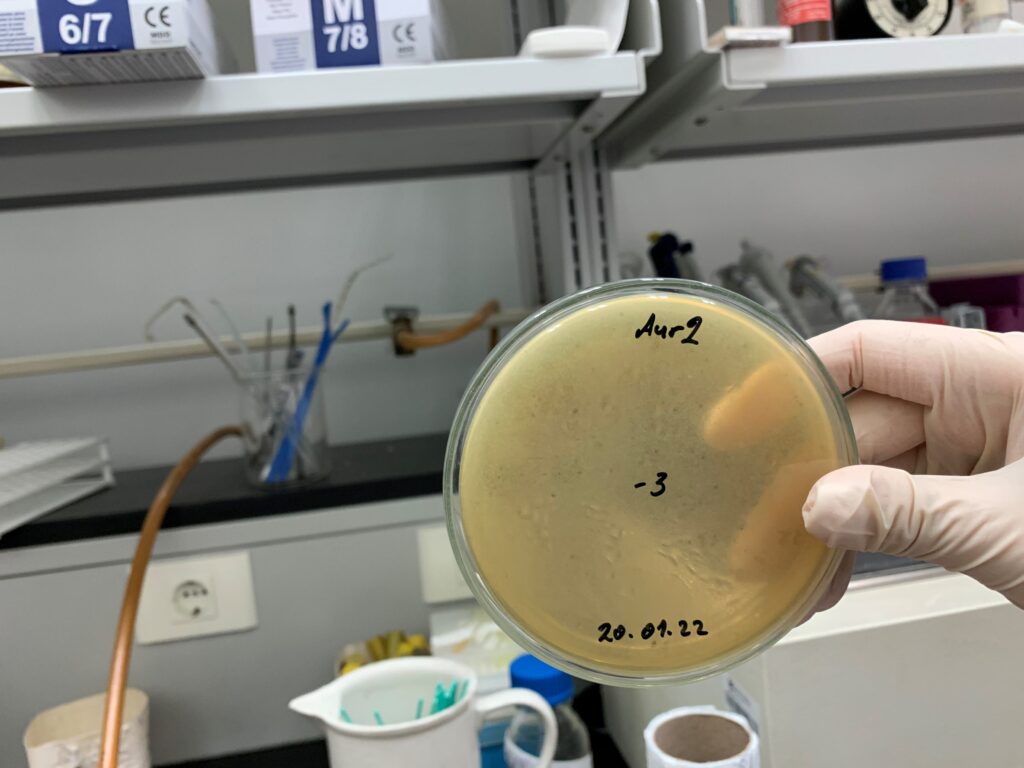Facilitating appropriate antibiotic use in respiratory tract infections in children in Kyrgyzstan
Context
In the Kyrgyz Republic, an interagency programme and an action plan to contain AMR have been developed, but these are currently still under discussion. While the Ministry of Health (MOH) is committed to AMR mitigation by supporting rational antibiotic use, lack of resources and evidence-based research mean that many issues are not currently being addressed. There are limited studies on AMR in the Kyrgyz Republic, so despite being a member of the Central Asian and European Surveillance of Antimicrobial Resistance (CAESAR) network, they are not reporting data into the network. In addition, there are large gaps in the training of doctors, nurses and pharmacists, so the issue of overuse and misuse of antibiotics has not been resolved.
Problem
Respiratory tract infections (RTIs) are the most common cause of contact to the health system and are the main reason for antibiotic overuse at the primary care level around the world. Acute lower respiratory infections (ALRI) are the most common cause of death among children under 5 globally. In 2020, respiratory diseases accounted for 49.7% of child morbidity in children aged 0-14 years in the Kyrgyz Republic.
With increasing vaccine coverage, and a range of causes of respiratory infections, only a small proportion of these illnesses require antibiotics. In the Kyrgyz Republic, most children are diagnosed and treated at a primary care clinic, primarily by mid-level providers (nurses and feldshers) with only limited access to diagnostic equipment. To assist health care providers in diagnosing under these conditions, various algorithms have been used but this approach has been shown to overdiagnose pneumonia resulting in the unnecessary prescription of antibiotics. New approaches to diagnosing and treating respiratory infections in children are therefore needed.
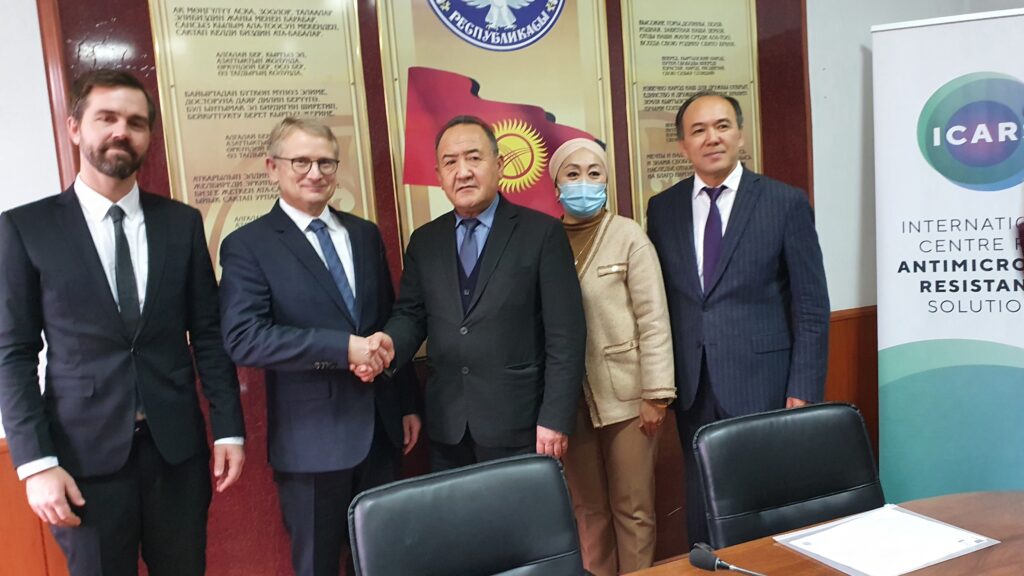
Project overview
The project will be made up of several components including:
- An individually randomized controlled trial to determine the effectiveness of a point of care test (POCT) to measure the level of C-reactive protein (CRP), an inflammation marker which can be used to indicate severe infection. This diagnostic tool helps health care workers to identify whether children with RTIs need antibiotics. The trial was carried out in 14 different primary health care centres in the Chui and Naryn regions of Kyrgyzstan
- A qualitative study to assess acceptability of the CRP POCT among healthcare workers and caregivers
- A health economic study to assess the economic feasibility of the intervention.
- A microbiological study to identify pathogens causing RTIs in children in the study areas.
Outcomes
- A 10% reduction in the unnecessary use of antibiotics among children in the intervention group
- Increased knowledge regarding type of pathogen and antibiotic sensitivity of the bacteria causing RTIs among children in the study areas
- Information on the cost-effectiveness of the intervention.
Results
The first phase of the study has now been completed. Findings from the pilot study were presented at the International Primary Care and Respiratory Group conference in 2023. Preliminary findings from all studies included in the first part of the project were also presented at internal congress in Kyrgyzstan in 2023. In addition, 2 papers have been published so far: a protocol paper describing the methodology for the RCT and a feasibility paper describing the pilot for the RCT. A second phase has been approved for funding which will focus on the implementation of the CRP POCT and will compare the effectiveness of different implementation strategies.
Facts
Region: Asia
Sector: Humans
Country: Kyrgyzstan
Type: Project
Country partners: Ministry of Health, Kyrgyz Republic; Republican Research Centre of Pulmonology and Rehabilitation; National Centre of Maternity and Childhood Care; Department of Disease Prevention and State Sanitary and Epidemiological Surveillance; Kyrgyz Thoracic Society; Global Health Unit, Rigshospitalet, Denmark
Timescale: 1st January 2022 - 31st December 2026
ICARS Science Team
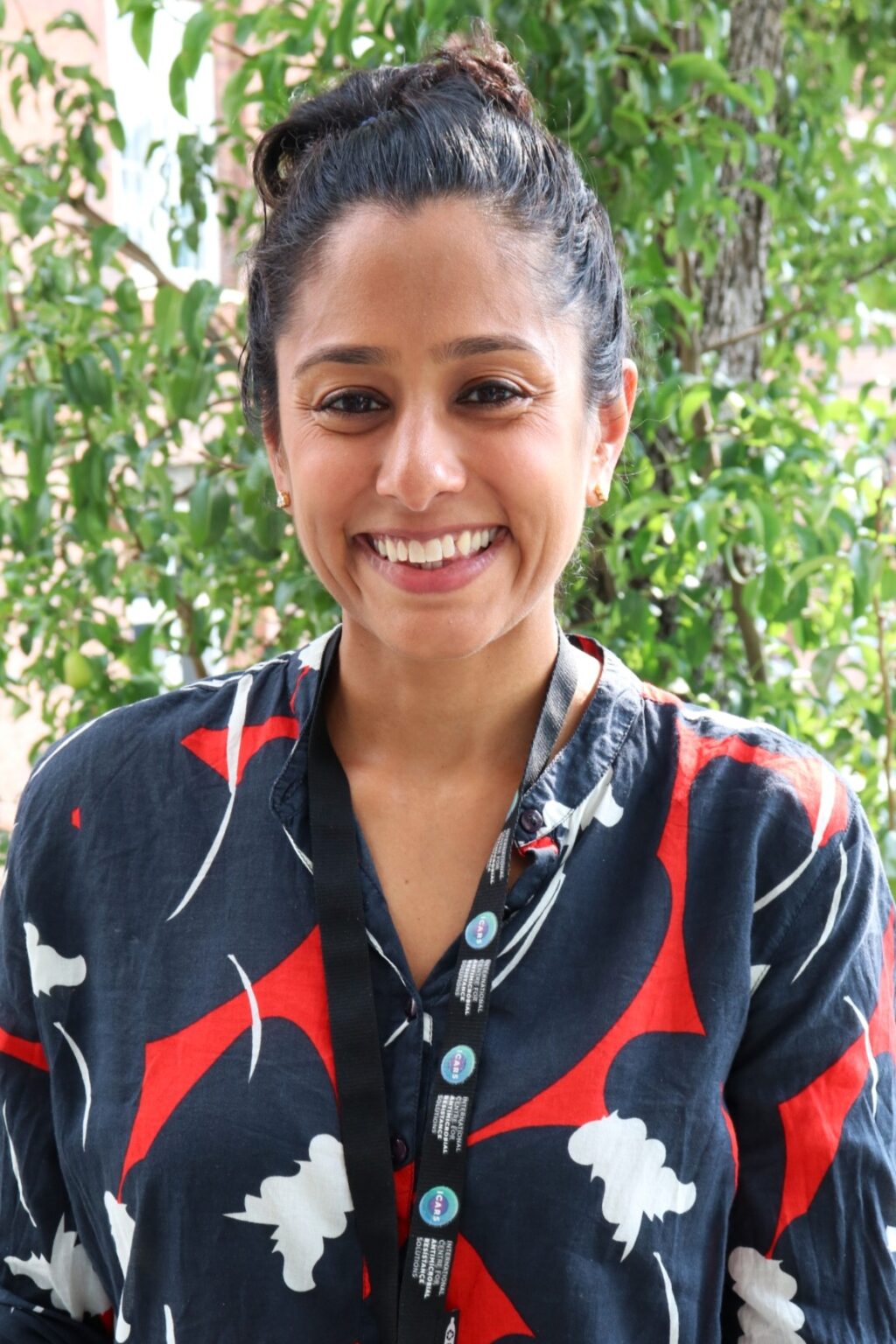
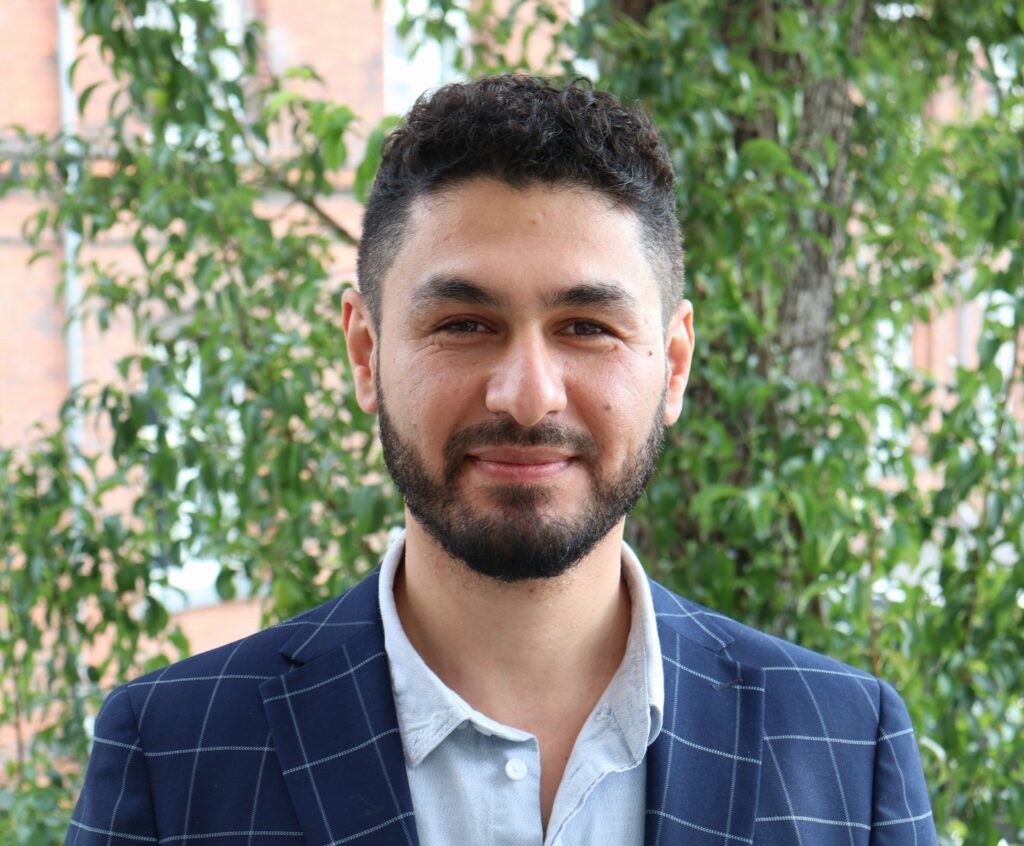
Resources
Share
Share this project on socials

